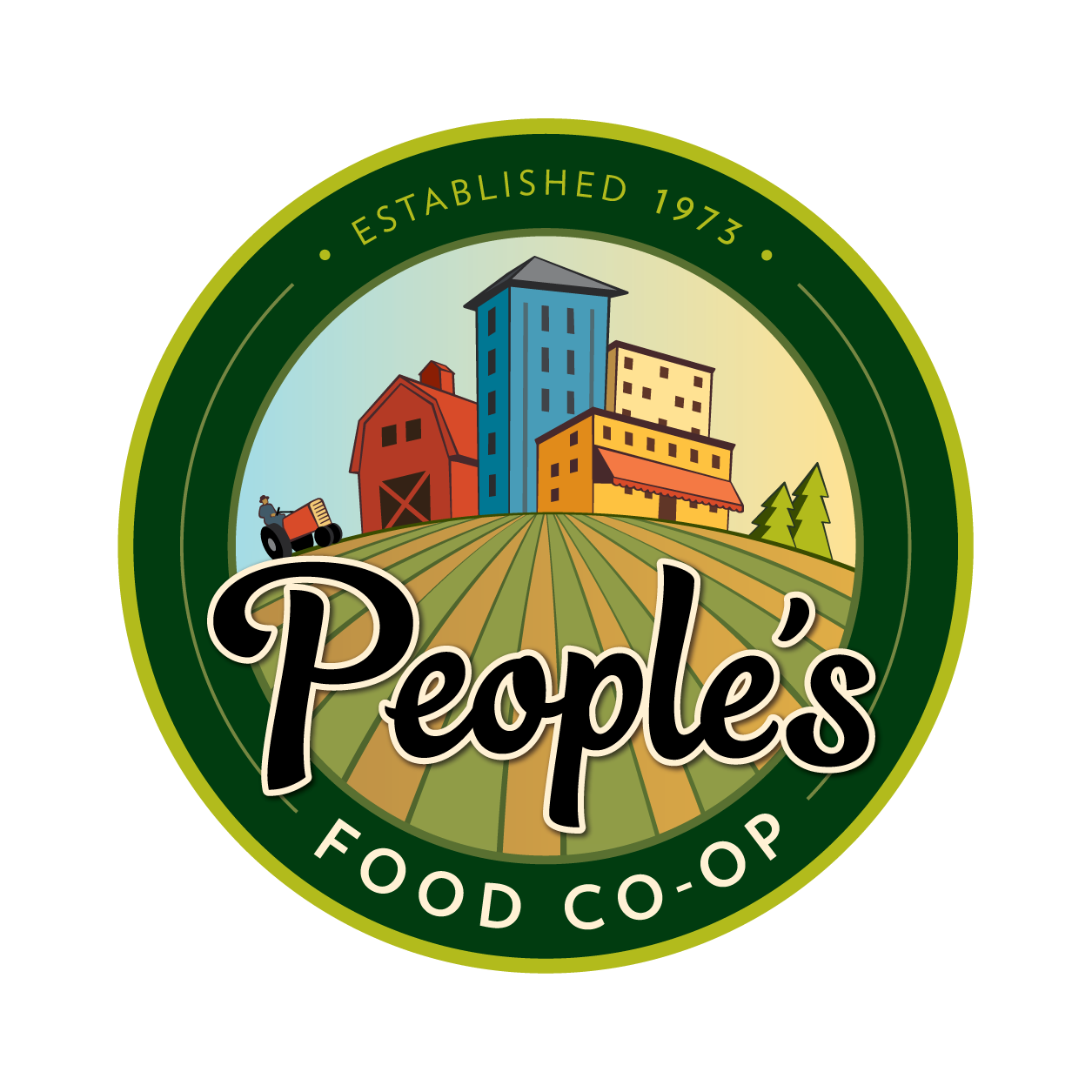Hoyo Sambusas
Mariam Mohamed, right, with sambusa crew.
Sambusas are a deep-fried pastry with savory filling—similar to Cornish pasties, Italian calzones, or Argentine empanadas. Every community that has immigrated to this country has brought their traditional foods and added those flavors to the American menu. People’s Food Co-op has been happy to recently add traditional hand-made sambusas, made in Minneapolis by Somali immigrants.
Several years ago, a couple of Minneapolis entrepreneurs saw the opportunity to bring a staple of African cooking to the Upper Midwest. Matt Glover and Mariam Mohamed wanted to help their Somali neighbors find work and community in the Twin Cities. Matt, an experienced chef from White Bear Lake, was excited to try Somali sambusas at a neighborhood potluck. He got to talking with the women in the Somali community and formed a partnership with Mariam—a Somali woman who’d been in the U.S. since 1985—and they decided to launch Hoyo. Hoyo means “mother” in Somali and the company was formed with the mission of bringing employment to Somali immigrant women. People’s Food Co-op started carrying Hoyo’s sambusas in the Rochester store in 2018 and in La Crosse this last year.
At first, Matt and Mariam intended to sell their sambusas in the small Somali markets around the Twin Cities, but discovered that the shoppers, Somali women, had no interest in the pre-made sambusas. “Somali women learn to make sambusas from their mothers. Every region, every family has its own recipe,” Mariam says. “They weren’t interested in buying sambusas from the store, it wouldn’t be the sambusas their mothers made.”
Hoyo contacted the folks at Seward Co-op in Minneapolis. “They didn’t even ask questions,” Mariam says. “They told us to ‘come on in.’ And the sambusas were a hit.”
They then approached the Rochester and St. Paul school districts and the schools arranged to have the sambusas added to the children’s lunch choices during the school year. “It’s so good to have our children, Black and white, coming together and talking about food,” Mariam says. “Food is a commonality. We all come from somewhere.” Somali students were thrilled to have sambusas with their school lunch.
Other than the local school districts, Hoyo has focused on working with food cooperatives to build their market. And business has been steadily growing. Covid has complicated some of their business decisions—for instance, they decided not to work with restaurants. “Covid shut so many businesses,” Mariam notes. They remain a small business. “We were approached by Target, but we’re not ready for that. We need to solidify, take baby steps to grow.”
Hoyo makes a vegetarian lentil and a beef sambusa. They’re considering adding a fish variety to the line. They currently work out of a business incubator kitchen in the Twin Cities. They hope to have their own kitchen at some point. “We need a bigger space,” Mariam says. “We have so many people who want to work with us. We’re producing a couple of thousand sambusas a day now. Sambusas may look complicated, but they’re not. It’s good, handy food. We use home-made dough and filling. It’s fast food, but not junk-food.”
Besides producing delicious Somali food for co-op shoppers, Hoyo’s mission has been to offer employment to Somali women who otherwise face barriers to employment. “Food is the focal point, but the chefs are the heart of our operation,” Mariam says. “Many Somali women don’t speak English; they’re thrown into an unfamiliar culture.” At Hoyo they feel good about making money with the skills they learned from their families. “We are so proud to work together. We don’t have to hide,” Mariam says. “In some ways, Hoyo is a job-training incubator. The women learn that they have to arrive on time, learn all that context of American employee behavior. Sometimes we struggle, the women call us last minute, ‘I can’t come, my children are sick.’” Hoyo pays $15 an hour. The company employs 12–15 women, and many have been with the company for years.
Shoppers in Minneapolis, Rochester, and now La Crosse have all had their food horizons expanded a bit by Hoyo’s contribution to our local food choices, while giving a new community of Americans employment. One day, sambusas may come to be as American as that German pastry called “apple pie.



